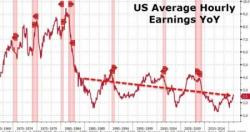Frontrunning: February 15
- China’s Yuan Makes Largest Gain Since 2005 on PBOC Cue (WSJ)
- Japan's Nikkei soars over 7%, for its biggest gain since 2008 (BBG)
- Global shares rise as firmer Chinese yuan eases deflation fears (Reuters)
- Banks' Surge Takes Europe's Stock Rally Into 2nd Day; HSBC Rises (BBG)
- Oil extends rally on prospects OPEC could act to counter low prices (Reuters)
- Europe's Higher-Yielding Bonds Benefit as Global Turmoil Eases (BBG)
- Republicans gear up for Supreme Court battle after Scalia's death (Reuters)


